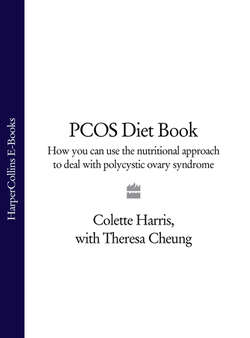Читать книгу PCOS Diet Book: How you can use the nutritional approach to deal with polycystic ovary syndrome - Theresa Cheung - Страница 59
How?
ОглавлениеStart the day with breakfast, have a mid-morning snack, followed by lunch, afternoon tea, then supper. All you need to get right is what to eat at each of these meal times. Obviously they do not need to be large meals, but should combine complex, low-GI carbohydrates with small amounts of protein.
Try to eat most of your calories earlier in the day. This would avoid being in ‘fast mode’ during the day and allow some of the calories to be burned off during the day’s activities.
Breakfast is often the meal that is completely ignored, but it’s the most important one. It kick-starts your metabolism, gives you energy and sets you up for the day. You may not feel like eating two minutes after you have jumped out of bed, so try and give yourself a little time to wake up before eating. Preparing something for later in the day such as a few snacks will start your digestive system working. Then eat some breakfast.
It’s a good idea to cook a little extra the night before so that you have snacks for the rest of the day to take to work or eat at home. An extra chicken breast, piece of salmon or pot of reduced-fat hummus together with some vegetable sticks such as carrots, celery and cucumber are simple and will work wonders at 11 a.m. and 3 p.m. when you start to wilt, as would some fresh or dried fruit and a handful of walnuts, almonds or sunflower seeds.
When I was diagnosed with PCOS my doctor told me that it would be harder for me to lose weight, and suggested regular exercise. I’d never been that health-conscious but wanted to lose the weight, so I enrolled in a gym and started classes a few times a week. I also made sure I was eating healthily. After six months nothing had happened – in fact, I had gained 5 pounds. I felt as if I was destined to be overweight.
In frustration I contacted a dietician who had experience helping women with PCOS. She asked me to tell her what I was actually eating, and she agreed that I wasn’t eating too much and that my food choices were sound. She said that the problem was I was skipping breakfast, not eating much at lunchtime and eating my main meal at night. She told me that the answer wasn’t a diet but to move towards a more metabolically-sound eating pattern. This meant six meals a day to keep my metabolic rate high so more food is burned off. Basically I was to eat the same amount of food, but in a different order. It seemed like her advice was far too generous – and how was I going to cope with eating breakfast, something I hadn’t done in years? Within weeks of changing my eating schedule, though, I was pounds lighter. All those years of skipping breakfast because I thought it would help me lose weight were actually making me gain it! How wrong can you be?
Rebecca, 27
